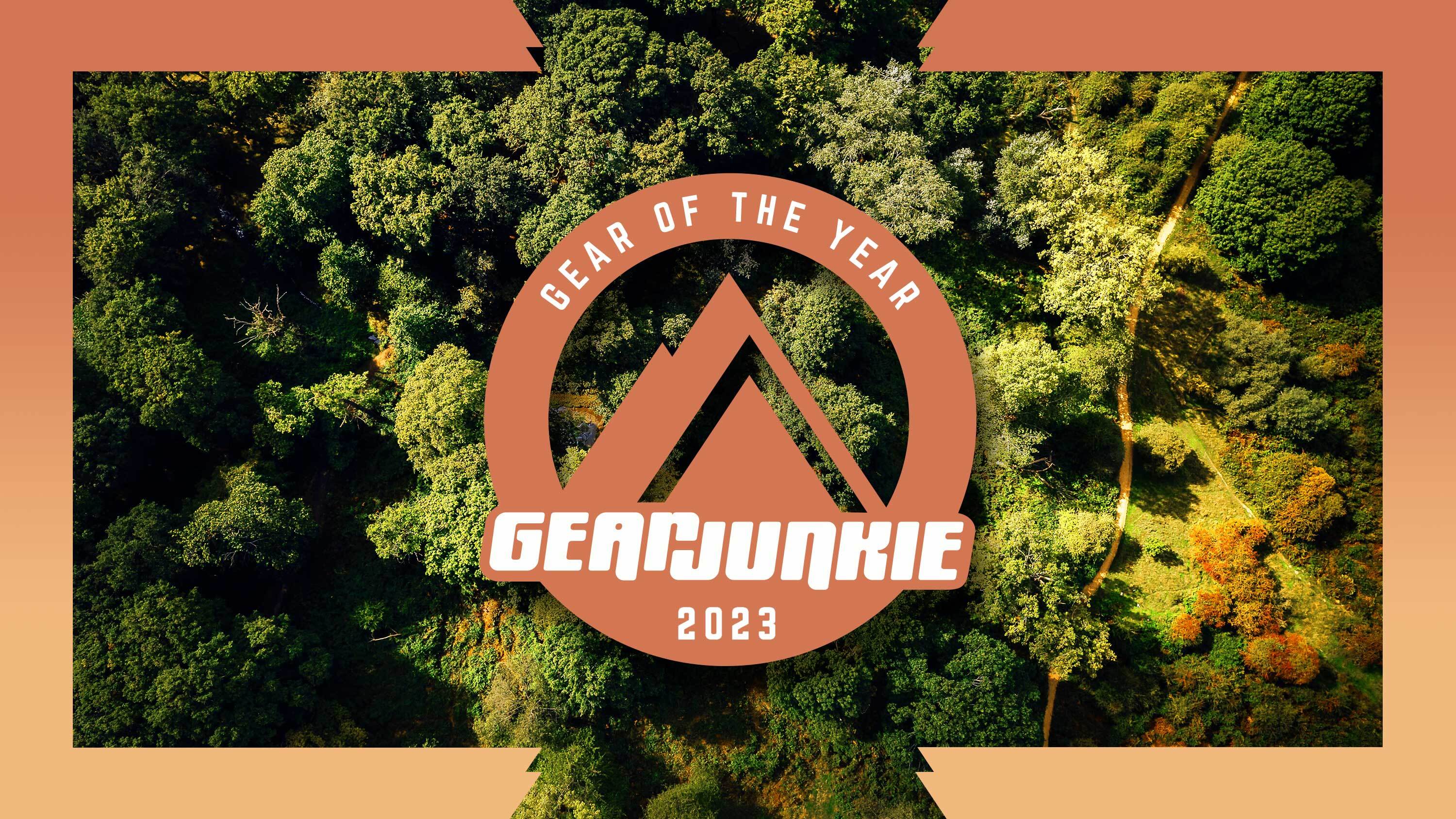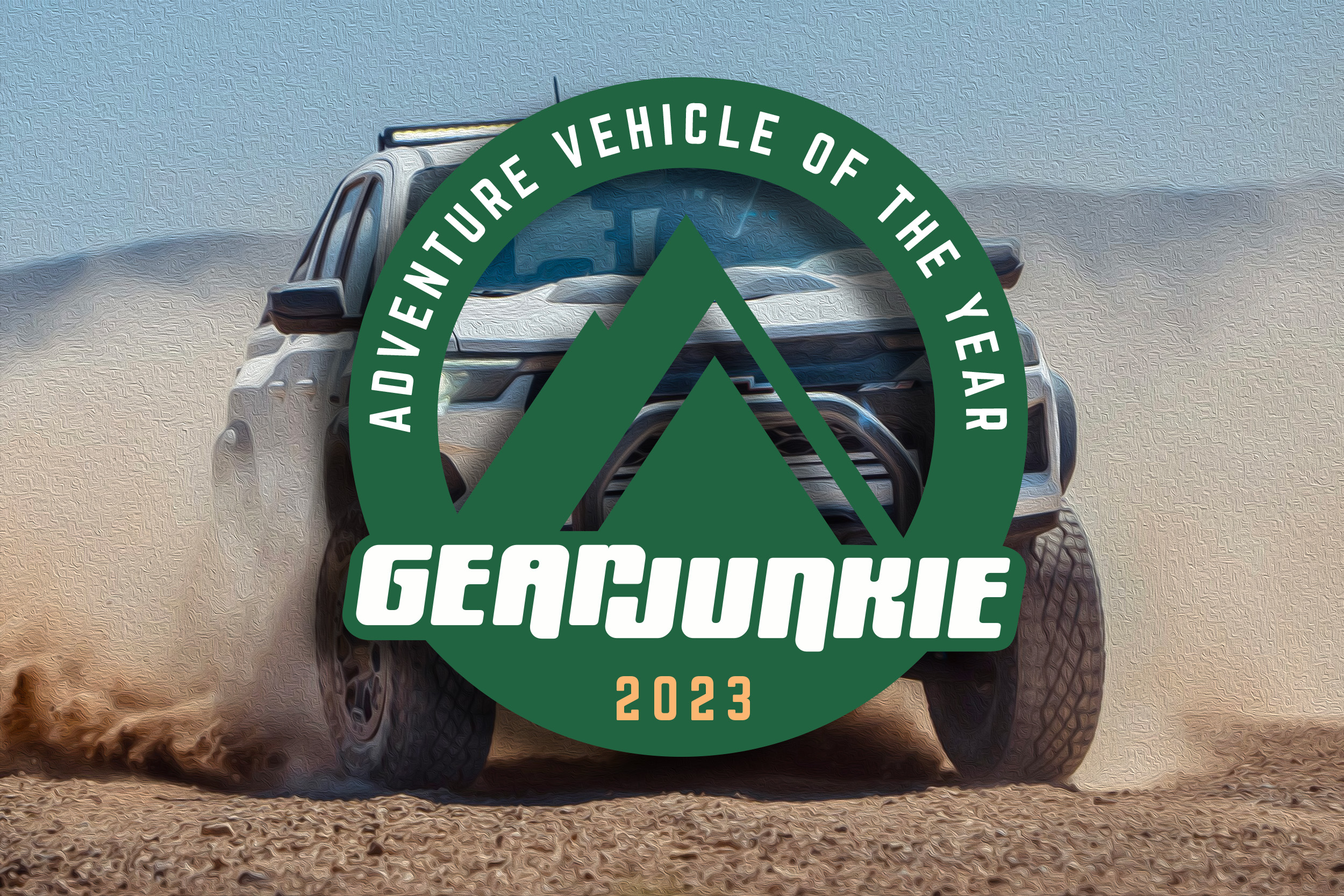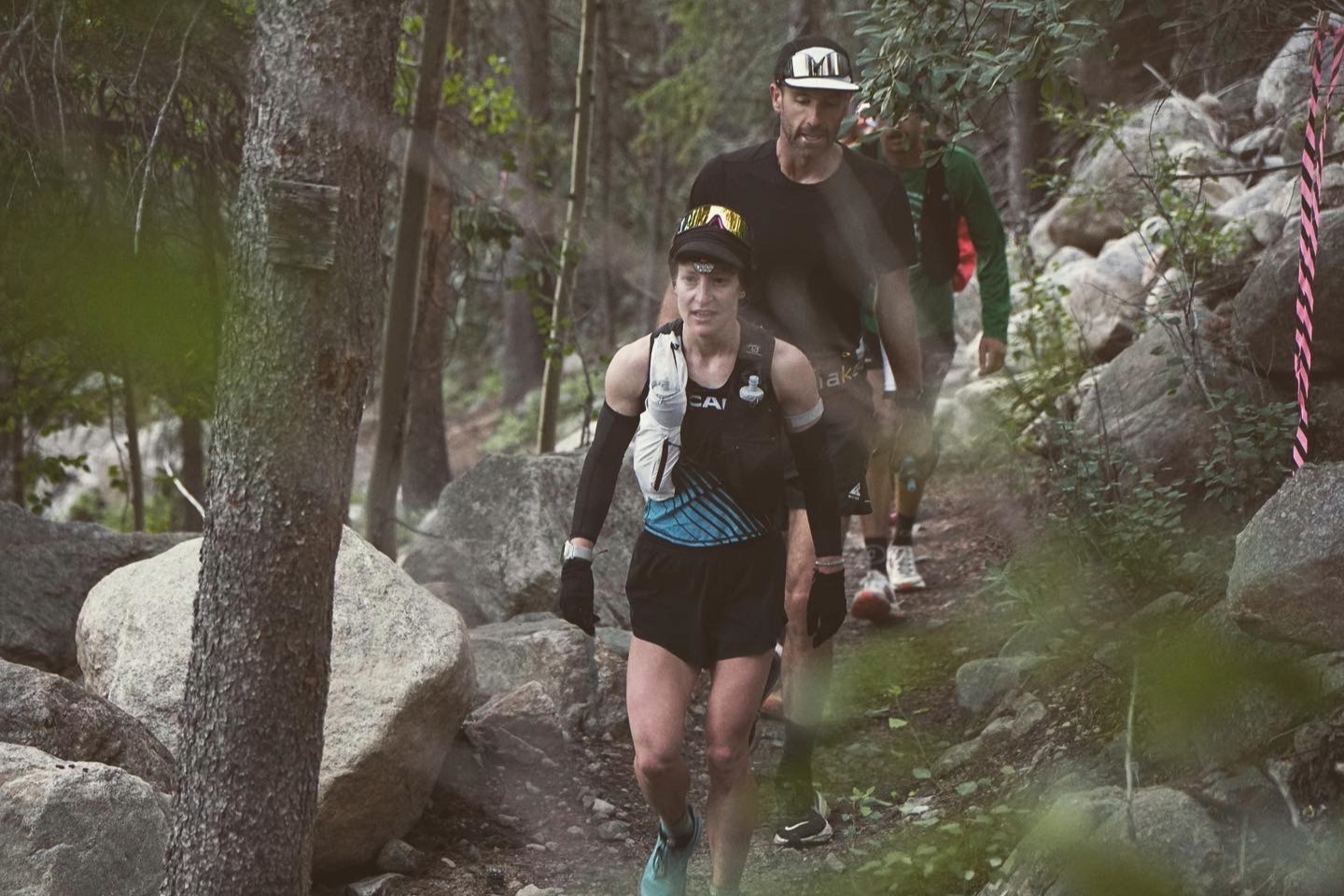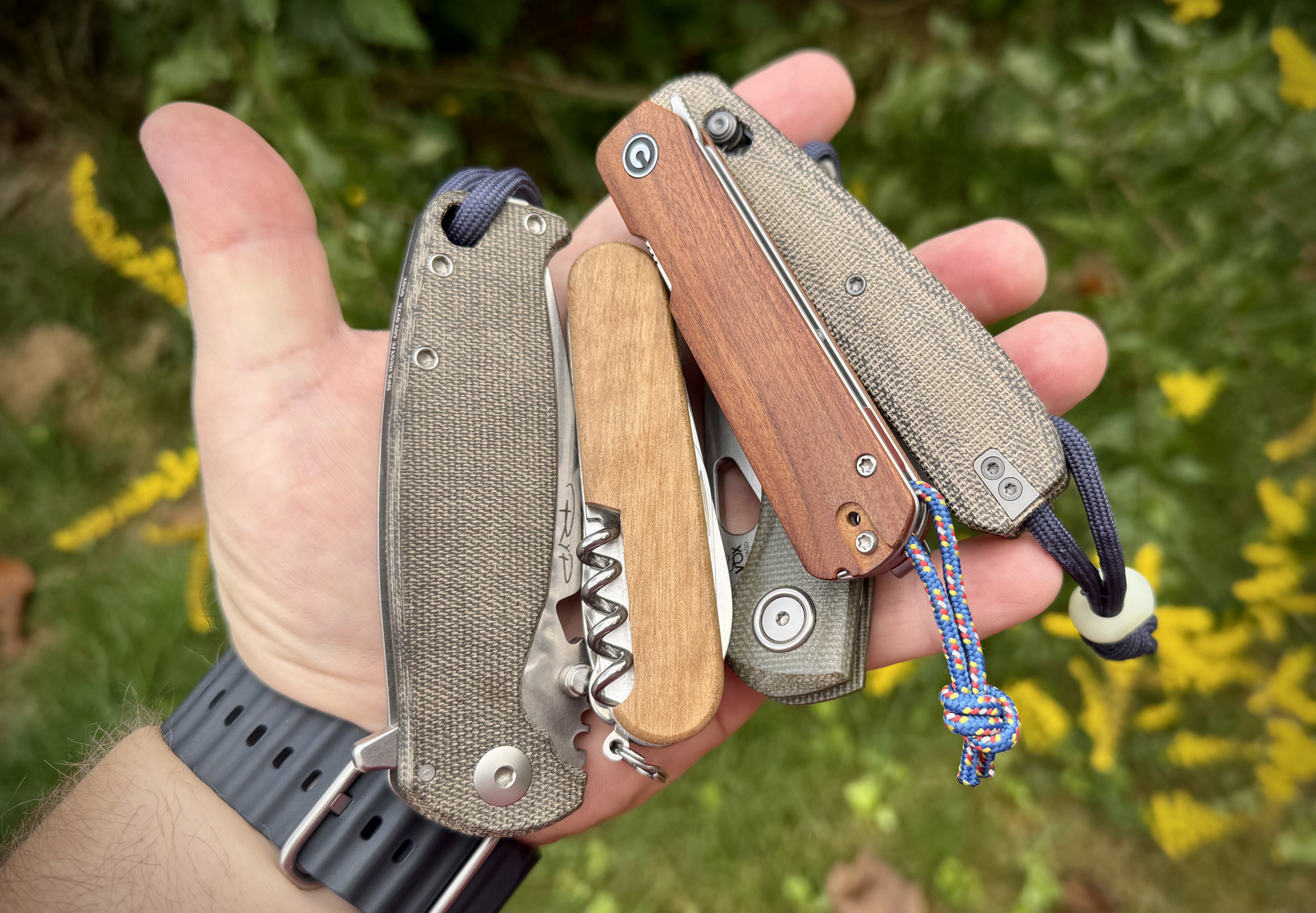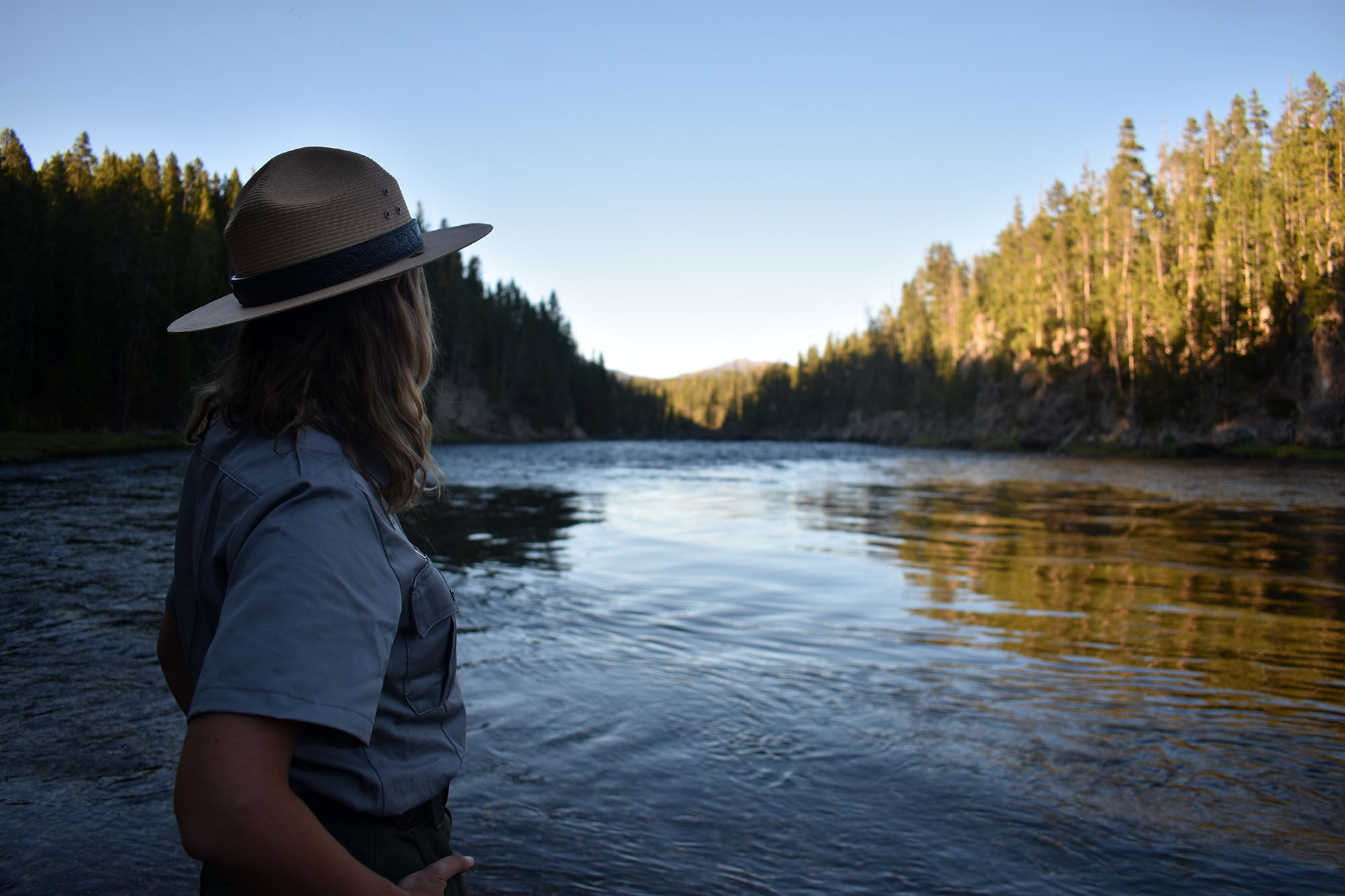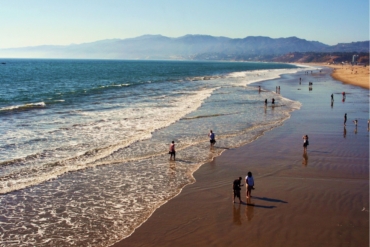It’s that time again! As 2023 zaps past us into the rearview, our annual Gear of the Year list is finally complete. We’ve reflected, we’ve discussed and debated, and we’ve distilled the vast catalog of gear our editors saw this year down to the very best.
These picks don’t just represent our favorites, though. They represent the most innovative designs, the coolest tech, the highest sustainability, and the most creative engineering the outdoor industry brought us in 2023. We chose these items because they’re bringing something new to the gear table.
And above all, they were chosen because they make outdoor adventures that much more enjoyable.
Considering the vast amount of gear our GearJunkie editors and writers have tested over the last 12 months, we couldn’t include everything. But here’s what made the cut.
Leatherman Arc
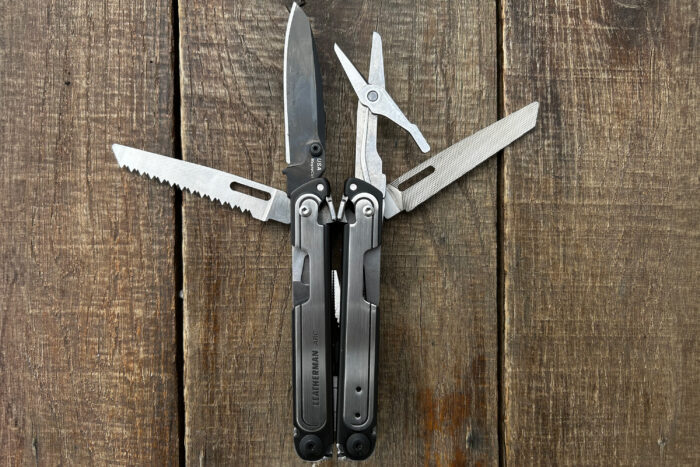
Adding the Leatherman Arc to this list was no gimme. With its “Innovation Garage” regularly releasing wild, limited-run knives and tools throughout the year (all of which sold out within minutes), the brand sets a pretty high bar for itself. If they’re all hits — and they all go out of stock — what should make the cut?
Combine that with the fact that while all of its tools are solid and dependable, Leatherman seemed to have wowed us with a seemingly insurmountable design innovation years ago when it launched its magnetic FREE platform. But Leatherman still brought the goods this year in the form of the Arc — not just because its 20-bit driver nearly doubles its already impressive 20-implement build, but because the brand had to completely rethink its design and manufacturing tolerances around 2023’s wünder-steel: MagnaCut.
We saw a flood of amazing knives brandishing MagnaCut in unique and noteworthy ways. But the Leatherman Arc stood out as a novel way to improve the already impressive nature of the steel. Leatherman engineers revealed they had to employ a new approach to manufacturing processes in order to build the Arc around the 2.76-inch MagnaCut blade.
The result is a one-hand-operable multitool destined for the pockets and sheaths of serious tradespeople and DIYers. MagnaCut imbues a “holy trinity of corrosion resistance, edge retention, and toughness,” while the toolbox-worth of implements — including swappable driver bits, spring-action scissors, hammer surface, and more — manages to justify the formidable $230 price tag.
Read the Full Review Check Price at Leatherman
Old Town Sportsman BigWater ePDL+ 132
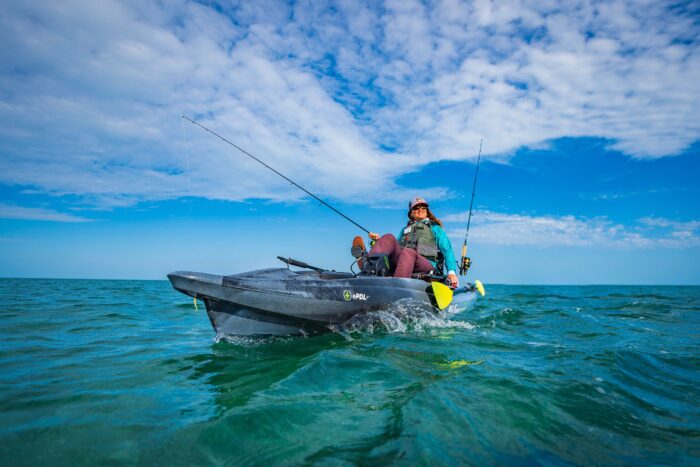
The game has changed. The ground has broken. Kids, we’ve officially been introduced to the e-bike of the water. Old Town is no stranger to the watercraft game. The brand has done it better and longer than most.
And when considering this year’s contenders for gear of the year, there were more than a few watersport contenders. It was a big year for the water. However, while others were discussed and several lost their spot on the list, the Old Town BigWater ePDL+ 132 wasn’t ever a question. It is the definition of what we mean by the innovative outdoor gear of 2023.
“This first-of-its-kind fishing kayak provides unparalleled versatility by combining manual pedal propulsion, power-assisted pedal, and fully motorized cruise control,” said Ryan Lilly, “watercraft brand evangelist” for parent company Johnson Outdoors.
We had the opportunity to take this e-kayak of sorts for a spin at ICAST 2023. Immediately, we realized the benefit of making power-assisted moves across the water. This is power where power really makes a difference.
Is it a little bit of a cheat for kayak purists? Maybe. However, purists need not apply here.
When it comes down to it, if you’re trying to land your PB catch, you won’t have to worry about managing the water while managing your rod and net. Wind who? Waves what? Current? Never heard of her. We’ll say this: it will be on our Christmas list until Santa caves.
BOA Alpine Ski Boots
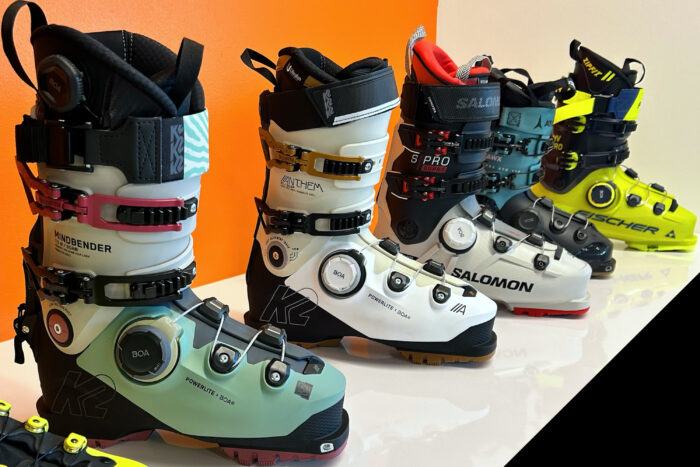
If there was one groundswell change in any product category in 2023, it was probably ski boots. And that’s because of one ingredient change — BOA.
The ubiquitous twist-to-adjust closure system launched the H+i1 platform over the year and took the alpine ski boot world by storm. Sure, BOA closure systems have existed for several years in ski touring models. But the H+i1 platform brought it from the fringes into the front-and-center space at alpine boot retailers and lift lines around the world.
Suddenly, the big boot players launched models like the K2 Mindbender, Atomic Hawx Ultra, and Salomon S/Supra BOA, outfitted with the new BOA Fit system. Not only do these boots look different from their predecessors, but they really do feel different.
In testing, GearJunkie skiers have found great performance in BOA ski boots. Sure, other styles of ski boots will continue indefinitely. But with the introduction of BOA, skiers have seen a paradigm shift in boot design that is certain to elevate comfort, fit, and performance for years to come.
GORE-TEX ePE

GORE-TEX has enjoyed decades of being the preeminent rainwear technology, and while bounding strides have been made toward going greener by switching to PFC-free DWR finishes, there’s always been a noteworthy sticking point: traditional GORE-TEX has forever chemicals baked right in.
The new ePE membrane from GORE-TEX, long developed but rolled out across the market in 2023, meets the demand from manufacturers for a totally PFC-free membrane and represents an industry sea change that we’re here for. By working closely with partners such as Patagonia and Arc’teryx, GORE has debuted its largest technology update in decades — and it just plain works.
While the original recipe made use of expanded polytetrafluoroethylene (note: the “fluoro” is the problem child, here), Gore’s new ePE membrane extends its same expansion technology and applies it to polyethylene, creating a microporous membrane that strips the PFCs out from within the layer itself. When stacked side-by-side with the old stuff, our expert testers couldn’t tell the difference, and that’s the point.
Our initial impressions of the new membrane have been glowing (take a peek at our time spent in Patagonia’s Storm Shift Jacket) and while the rollout has been metered — last winter saw a handful of ski shells from Patagonia and Arc’teryx decked out in ePE — more and more manufacturers are implementing ePE into their lines, from snow shells to climbing hardshells and rain jackets.
With as far-reaching a technology as GORE-TEX, it’s hard not to see 2023 as a Rubicon year for environmentally friendly outdoor rainwear, and ePE is leading the charge.
Goose Gear Park Series
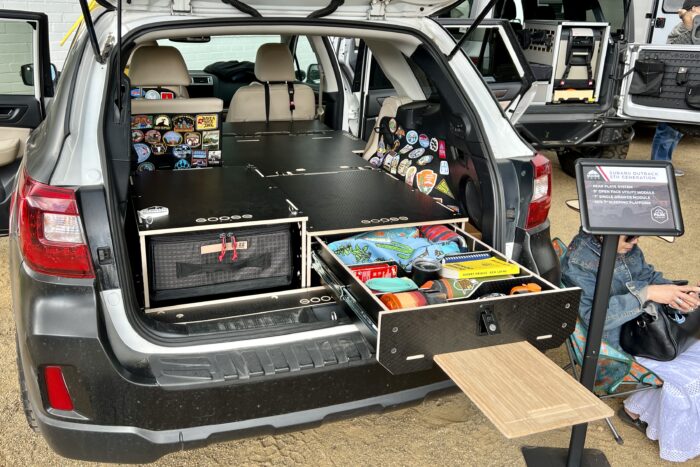
Do you want to have an overland rig, but don’t want a big gas-guzzling SUV or pickup? The crossover SUV that’s probably already in your driveway is way more capable of adventure than you might think, especially when you can quickly and easily sort it out with secure storage and a sleeping platform. That is now possible, with ease, with the Goose Gear Park Series.
The Goose Gear Park Series rolled out in mid-2023, with its debut at Overland Expo West. It is currently available for the RAV4, Outback, Forester, and Crosstrek, with many more vehicle fitments in the works.
The vehicle storage system flat packs — for inexpensive shipping — and can easily be assembled by you in your driveway. The Park Series doesn’t require a mounting plate (a requirement on most storage systems like this), comes in three height options, and can be configured/optioned in a wide range of ways.
Park Series is custom-made for each vehicle. This ensures the best use of the precious cargo volume and that the top surface is flat and level within each vehicle. Car camping has never been so comfortable, with over 6 feet of flat sleeping area, without removing any seats, on offer in each of these small crossovers. The system is also super easy to remove when not in use, which is not the case with most other systems like this on the market.
Pricing of this U.S.-built product — made with all U.S.-sourced parts — starts at about $1,500 and goes up from there. Build out your own Park Series system, for your vehicle and use case, on the Goose Gear website.
NEMO Tensor Extreme Sleeping Pad
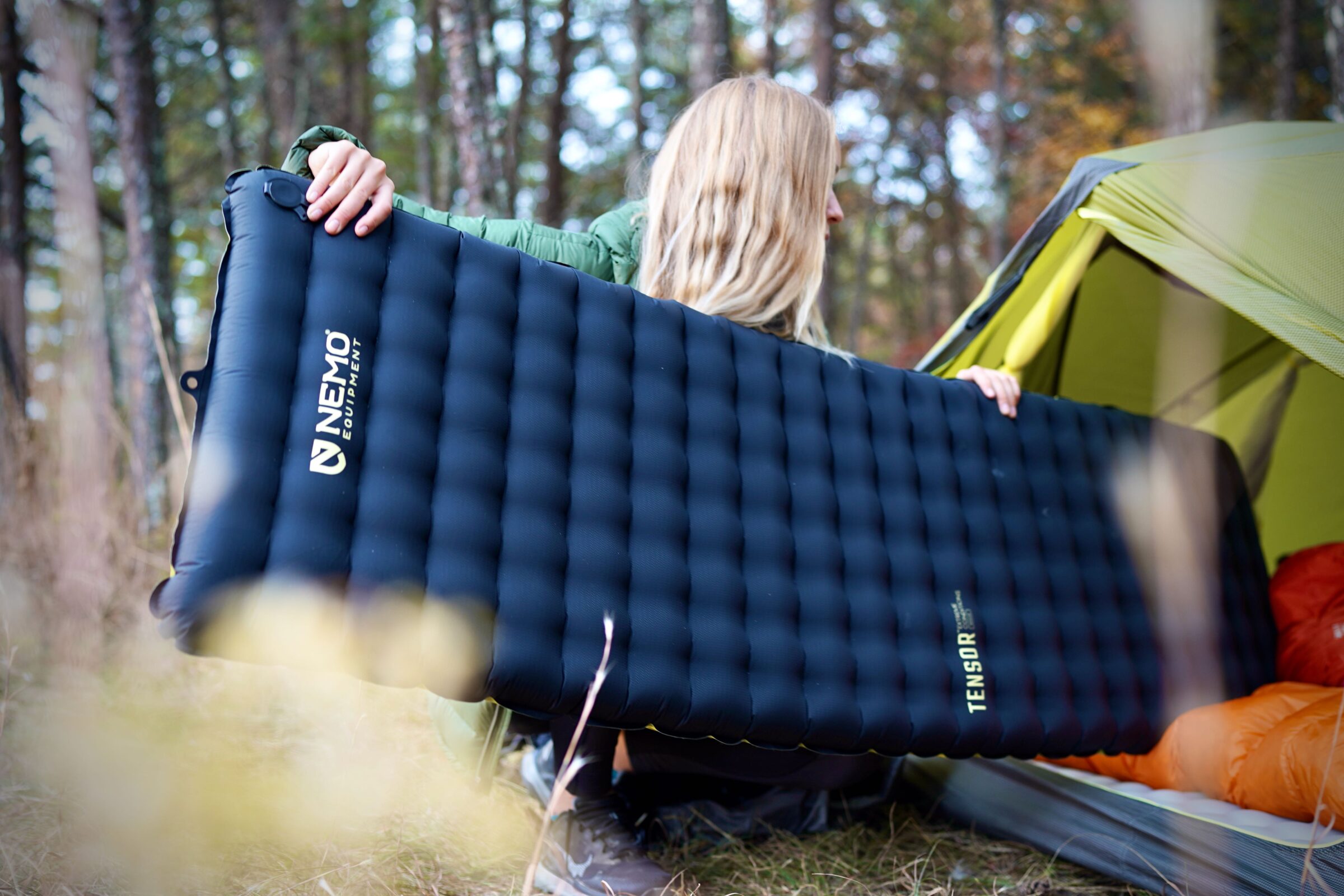
Whenever “17 ounces” and “8.5 R-value” fall in the same sentence, you know there’s going to be drama. We’re used to NEMO churning out great products, but this one took the ultralight cult by surprise. The new Tensor Extreme Conditions (EC) pad touts the bold claim of having the best warmth-to-weight ratio on the market. And well — objectively — it’s not wrong.
We were lucky to get an early look at this pad, and have been throwing it at some seriously gnarly adventures over the past few months. But, as a disclaimer, we haven’t been able to test it in the arctic conditions it was designed for — and therefore can’t speak with total authority on its claims. Make no mistake, this pad yearns for far-flung adventures on the very fringe of life-threatening conditions.
We brought the EC on several chilly trips, including a frigid 5-day ascent of El Cap in Yosemite to test its mettle. While a few qualms arose during testing, the Tensor EC undoubtedly sets a new bar in ultralight sleeping pad innovation.
Capitalizing on NEMO’s current pad tech, new Apex baffles churn out serious heat without packing on pounds. In basic terms, Apex entails four layers of thermal film placed over trapezoidal trusses, reflecting body heat back at the user and guarding against radiant heat loss. This design cuts weight, boosts heat, and is shockingly quiet. For stellar warmth at an ultralight weight, this is quite literally as good as it gets.
In light of what this pad accomplishes, however, those quibbles seem downright trivial. An 8.5 R-value at an impressively low 17 ounces — with a 3.5-inch stack height — is plenty to blow the pad’s competition out of the water. No existing pad touches these stats.
For the ultralight madmen braving arctic temps, you may have just stumbled across the backcountry bed of your dreams. We’ll be sure to update our review as we test it in the temps it was made for. As it stands, we’re finding the NEMO Tensor Extreme Conditions hard to beat. There’s much going on with this pad, so be sure to read our full review of the Tensor Extreme.
Jones Re-Up Tech
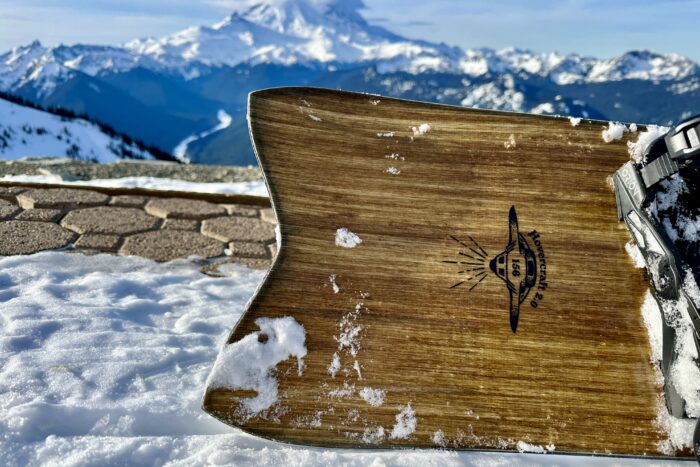
“Jones believes the world doesn’t need more products, but that the world needs better products,” the snowboard brand boldly proclaimed. Hear, hear. There are many outdoor companies that have really impressed us in the past 2-5 years in terms of advancements in sustainability, but Jones’ latest initiative really brings that sentiment home.
Introduced to the industry in October 2023 was Jones’ Re-Up Tech (coinciding with its Re-Up Snowboard Recycling Program). Jones isn’t just making a partial-recycled content snowboard, or a recyclable snowboard — but both — thanks to some pretty major innovations in board construction.
On top of that, it came up with the industry-first snowboard recycling program. Instead of being tossed, if a snowboard can be recycled, it not only saves materials but also reduces the overall carbon footprint of every board ever made.
Here’s how the tech works in a nutshell. With Re-Up, Jones can take snowboards of any brand, model, or year to be recycled and use 95% (!!) of those boards to build stringers on new boards, like the Hovercraft 2.0. The result is a board with 100% upcycled Re-Up Tech in the stringers, recycled sidewalls, partially recycled steel edges, Oeko-Tex-certified water-based inks, and an overall much more sustainable — but still capable — product.
The cherry on top? As of 2020, Jones’ factory is 100% solar powered, reducing CO2 emissions of the manufacturing process by 89%. We’ve currently had the Hovercraft 2.0 in testing — read our full review.
Oyster Tempo Cooler
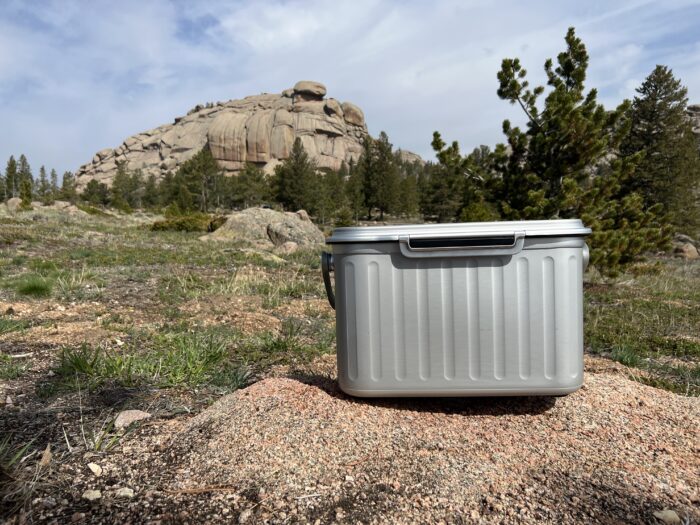
The technology behind a thermos has been around since 1892. Scottish scientist Sir James Dewar put a glass bottle inside another and sucked the air between them out, creating the world’s first vacuum-insulated container.
But it wasn’t until 2023, when Norwegian company Oyster came along with its debut product, that someone took that technology, blew it up to scale, and made a cooler with it. The Tempo Cooler is an aluminum, vacuum-insulated ice box that requires no ice.
The aluminum interior evenly distributes the cold around the Tempo’s interior, and the vacuum seal traps it in there. It’s so thermally efficient, that the brand claims two cooler blocks are all you need to keep things refrigerated within.
We found that to be true during our testing. The two Oyster brand “cooler batteries” included with the Tempo were enough to keep things cool for hours on end. You could even put cold beer into it without ice or cooler blocks and it would stay cold. However, there’s no harm in using ice, and with it, this cooler gets downright frigid and holds that ice without melting it.
And, despite its much smaller size, the Oyster Tempo is within 4 quarts of the same volume as a Yeti 35. Oyster packed a lot of cooler into an impressively small package with the Tempo.
Forge+Bond Fusion Fiber Wheels
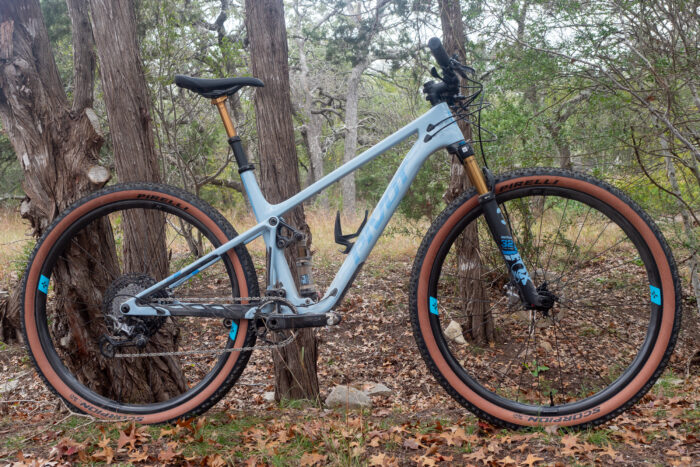
Modern cycling has an elephant in the room, and it’s huge — what do we do with all the carbon fiber frames, wheels, and components after their usable life? Almost all of it ends up in landfills and it’s not at all biodegradable. Until recently, there was no way to reuse the notoriously impossible-to-recycle material.
In 2020, Utah brand CSS Composites released FusionFiber, a recyclable carbon fiber ideal for use in cycling. This industry-first material technology also benefited from being more flexible and compliant due to using long-chain polymers instead of the customary toxic epoxies and resins. Revel Bikes released the first FusionFiber wheel the same year, which our cycling editor loved for the smooth ride.
This year, CSS Composites launched an entire line of FusionFiber wheels under the brand Forge+Bond. This marks the first time recyclable carbon is offered in more than just one-off components, and we hope that this starts a trend to improve the woefully low sustainability of current carbon bicycle frames and parts. It hurts to think that every carbon fiber frame, component, or wheelset before FusionFiber is sitting or will sit in a landfill forever.
Forge+Bond currently offers three mountain bikes and one gravel bike wheelset and sells the rims from these wheels. For starting an industry-wide trend (hopefully) that can make cycling far more sustainable, we give Forge+Bond a GearJunkie Gear of the Year Award.
PACT Lite Kit
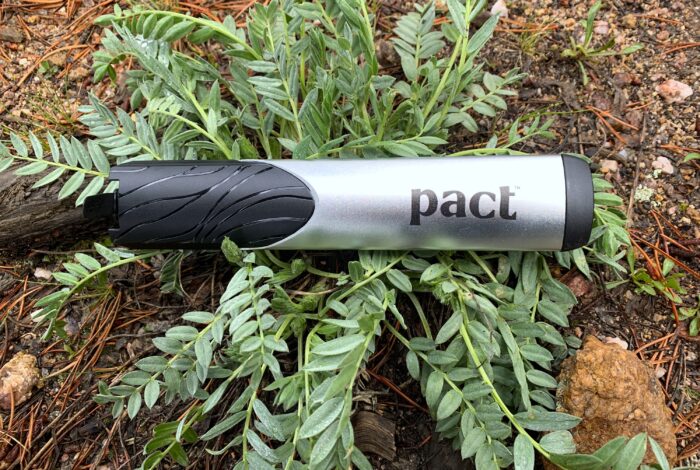
Yes, a backcountry poop kit made our Gear of the Year list. No joke. But here’s why: since its inception, the founding team at PACT has been doing everything in their power to be a voice for responsible recreation, and LNT.
Less trash left behind, less of a barrier to entry, and still more ideal than pooping into a bag and packing said poop out with you. I said this when I reviewed the PACT Lite kit, and I’ll say it again, this is quite possibly the most minimalist poop kit solution and the only one you’ll ever need.
The PACT Lite, which hit shelves in early 2023, is a massive improvement on the first PACT kit from the brand. The first iteration was similar to a toiletry-style roll-up organizer, with zippered pockets and dialed components like a trowel, compressible wipes, and mycelium tablets to help break down waste.
This year, PACT took its components a step further, designing an ultralightweight unit with the necessary components nesting inside the trowel itself, with zero wasted space.
We have nothing but respect for a brand that is doing everything right when trying to make the experience of spending time outdoors less fearful for beginners, and more streamlined for any outdoor experts and recreationists who spend a significant amount of time outside. And while a poop trowel kit may not be the most technical gear out there, it’s still an essential one.
PACT is based in Colorado’s Western slope and is available in REI stores nationwide, though the new LITE kit is only available from PACT directly online.
